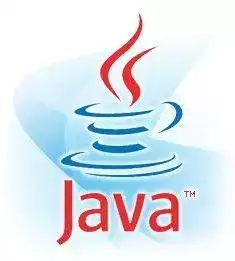

Last Updated: 04 September, 2022
Hello guys, Before we start discussing the differences between Java and the C++ language, let's first briefly know about what Java and the C++ language are. Then, afterward, we will see the differences between both and their programming implementation.
Java is an object-oriented programming language (OOP), and it has so many powerful features that make Java one of the most popular, useful, and high-performance programming languages. Java is widely recognized for its object-oriented platform independence, high performance, security, etc.
Java was developed by James Gosling at Sun Microsystems in the year 1995 and later on Oracle Corporation's acquisition of Sun Microsystems in 2009–10.
Java syntax and concepts are easy and simple to learn and understand. That makes Java a simple programming language. Java's syntax is similar to other programming languages like C and C++. The codes in Java are always written in the form of classes and objects.
C# (pronounced "C-sharp") is a Microsoft-developed general-purpose, object-oriented programming language that runs on the .Net Framework.
The C# language syntax is influenced by C++, Java, Pascal, and a few other languages that are easy to adopt. C# also avoids complexity and unstructured language features.
C# is mainly used for developing desktop and web applications.
There are some important characteristics of C#
| Comparison Parameters |  Java |  C# | |
|---|---|---|---|
| Founder | Java was developed at Sun Microsystems by James Gosling. | C# was developed at Microsoft, led by Anders Hejlsberg and his team. | |
| Used for | Java is heavily used for building complex applications in an open-source ecosystem. | C# is mostly used to develop applications for Microsoft platforms. | |
| Process to run | Java code is compiled into bytecode, and then bytecode is converted to machine code and can run on any platform. | C# code is interpreted into bytecode (MSIL) which is compiled by CLR and JIT compiler will convert MSIL into native machine code. | |
| Runtime Environment | Java is designed to execute on JRE (Java Runtime Environment). | C# is designed to be executed on the CLR (Common Language Runtime). | |
| Conditional Compilation | Java does not support conditional compilation. | C# supports conditional compilation using preprocessor directives. | |
| Built-in data types | In Java, built-in data types that are passed by value are called primitive types. | In C#, built-in data types that are passed by value are called simple types. | |
| Type safety | Java type safety is safe. | C# type of safety is unsafe. | |
| Pointers | Java does not support pointers. | In C# pointers can be used only in unsafe mode. | |
| Floating Point | For getting accurate floating-point results on every platform, Java has provided the strictfp keyword. | C# does not provide these kinds of features, so the result of floating-point numbers may not be guaranteed to be the same across all platforms. | |
| Structure and Union | Java doesn’t support structures and unions. | C# supports structures and unions. | |
| goto statement | Java does not support goto statements. | C# supports goto statements. | |
| Arrays | Arrays in Java are a direct specialization of objects. | Arrays in C# are a specialization of System. | |
| Operator Overloading | Java does not support operator overloading. | C# supports operator overloading for multiple operators. | |
| Exception | Java supports both checked and unchecked exceptions. | C# only supports unchecked exceptions. | |
| Tools | Eclipse, NetBeans, IntelliJ IDEA | Visual Studio, MonoDevelop, #develop |
Hello.java
Java Program Output
Hello.cs
C# Program Output
That's all guys, hope this Java article is helpful for you.
Happy Learning... 😀
feedback@javabytechie.com